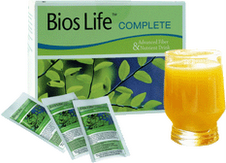Role of Cholesterol in Alzheimer’s disease is Being Studied, Reports the Harvard Men’s Health Watch
It sounds simple: The lower your cholesterol, the better your heart health. In fact, on this subject, your heart and your head may agree. The relationships among cholesterol levels, psychological function, and neurologic disorders are complex and sometimes controversial, reports the March 2007 issue of Harvard Men’s Health Watch.
Two Major Forms of Dementia
There are two major forms of dementia: vascular dementia and Alzheimer’s disease. Vascular dementia results when blood vessel damage deprives the brain of oxygen. Brain cells die as a result, and mental function suffers.
Some studies link high cholesterol levels to an increased risk of cognitive impairment. More research is needed to sort this out, but even now, investigations of HDL (good) cholesterol and mental function have consistently reported that high HDL levels appear to help preserve mental function in older people.
The Connection Between Alzheimer’s Disease and Cholesterol is Complex
Scientists have learned that much of the damage of Alzheimer’s comes from deposits of a sticky protein, called beta-amyloid, in vital areas of the brain. In some studies, high cholesterol levels appear to accelerate the formation of beta-amyloid plaques. People with the genetic trait that increases the level of a particular cholesterol transport protein have a greatly increased risk of late-onset Alzheimer’s.
Can Statins Reduce the Risk of Alzheimer’s disease?
In the most recent studies, people who took statins did not appear to be at lower risk for the disease. Additional research is under way. For now, it’s too early for firm conclusions about the relationships among cholesterol, cognitive function, and statin therapy.
The Alzheimer Disease—Bios Life Connection
Results from numerous clinical studies show that Bios Life is very effective in improving overall cholesterol levels.
Bios Life has proven to lower LDL (bad) cholesterol by an astounding 31 percent. Some test participants reported decreases more than 52 percent!
What’s equally amazing is that the average increase of HDL (good) cholesterol was 29 percent, with some achieving increases of up to 85 percent! Keep in mind that statin drugs have little or no effect on good cholesterol.What’s more, if you’re already treating your cholesterol levels with prescription statins, Bios Life will help you reduce your LDL cholesterol even further.
In addition to improving LDL and HDL levels, Bios Life lowers triglycerides—the form in which most fat exists in food as well as in your body and blood. Bios Life has also proven to stabilize blood sugar levels. No other supplement is more comprehensive for treating your entire lipid profile than Bios Life.
Before you get Alzheimer's Disease, do your blood test today and start start using BiosLife before you forget your lovely family and where you kept your fortune.
Tuesday, April 10, 2007
Cholesterol in Alzheimer's Disease
Subscribe to:
Post Comments (Atom)



No comments:
Post a Comment